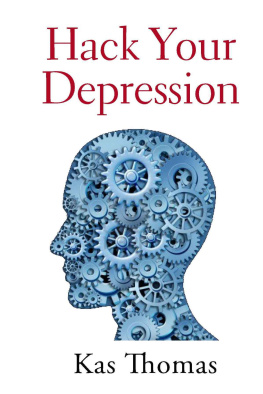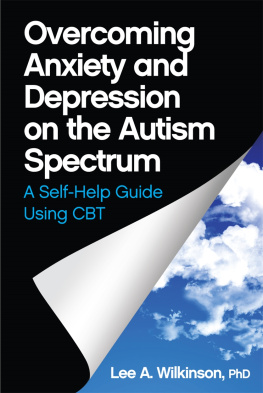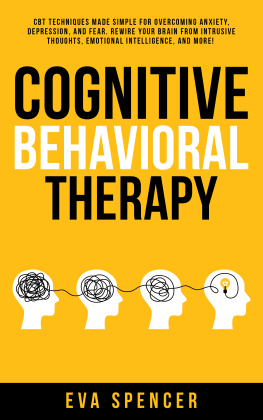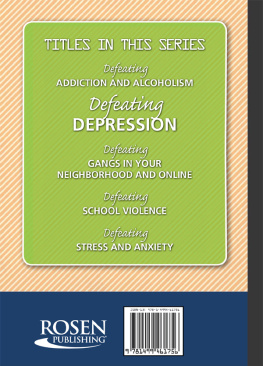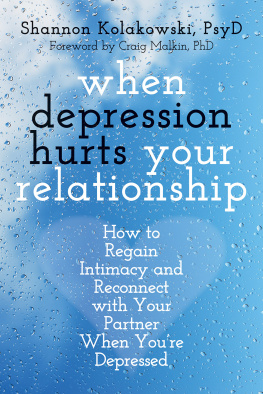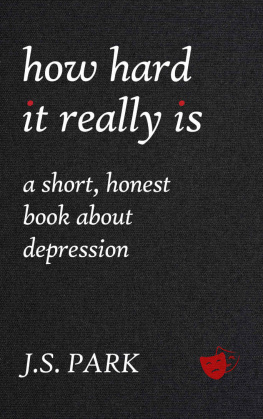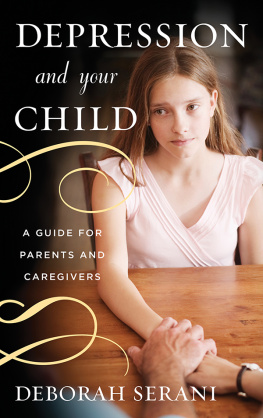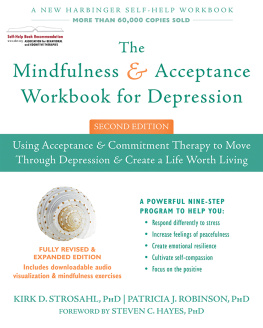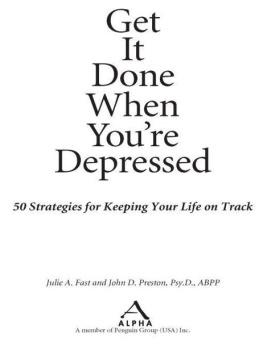2015 by Kas Thomas. All rights reserved.
First edition, by Author-Zone Books.
Printed in the United States of America. No part of this book may be reprinted in any manner whatsoever (except for brief excerpts in reviews) without the written permission of the copyright holder.
For reprint rights, contact the author at . For updates, follow @KasThomas on Twitter or visit us on the web at http://hackyourdepression.com. Be sure to add your name to our mailing list at (your privacy is assured).
Introduction
It was the self, the purpose and essence of which I sought to learn. It was the self, I wanted to free myself from, which I sought to overcome. But I was not able to overcome it, could only deceive it, could only flee from it, only hide from it. Truly, no thing in this world has kept my thoughts thus busy, as this my very own self, this mystery of me being alive, of me being one and being separated and isolated from all others, of me being Siddhartha! And there is no thing in this world I know less about than about me, about Siddhartha!
Siddhartha , Hermann Hesse
Maybe you've noticed that no matter where you go in this life, whether it's to a geographical destination or some other kind of destination, you rarely, if ever, get where you're going in a straight line. Invariably, there are twists, turns, detours, setbacks, switchbacks, course corrections, obstacles, distractions, diversions, things you didn't plan on. But eventually you wind up at the destination. Sometimes. Often enough.
This is an important point to bear in mind, regarding recovery from a mental disorder. If you expect to make straight-line progress from Point A to Point B, you'll be disappointed. But if you make appreciable (if only small) amounts of progress, on an often-enough basis, you'll get where you're going. Expect some zigs; expect some zags. It's the nature of progress.
I feel a certain amount of hesitancy in writing what comes next, to tell you the truth. I'm not a therapist. I have no formal training in psychology (beyond two introductory psych courses and a psychobiology lab, in college). I'm not sure I can articulate what I want to say, in a way that will be satisfying; and I don't want to disappoint. I've been disappointed many times, in therapy. I know what that feels like.
Also, I can't claim to be 100% recovered from my depression (technically dysthymia at this point), and I don't want to give the impression that I'm in possession of some special knowledge that has helped me achieve a spectacular recovery that hasn't happened. I've gotten significantly better; that much, I can tell you with a straight face. Im no longer bipolar (and havent been since September 2012). But I still have work to do.
More than that, I'm disdainful of quick fixes of the 10 Things You Need to Know type, and I loathe homespun homilies of the things could always be worse variety.
And finally, I know that what works for me won't necessarily work for you. Every person's situation is different. Every person's mental condition is different. One size never fits all, in this business.
I'm going to list some learnings, in this slim volume, that I've taken from therapy (and from life) over the years. They're subject to the disclaimers listed above. Use these tips in good health and at your own risk. This book is not a substitute for therapy and comes with no guarantees. What I recommend, whenever you encounter a compilation of tips like the ones youll find in this book, is that you do what I do: Take from it what you can, discard the rest. If something seems worthwhile, profit from it. If something doesn't seem worthwhile, shrug it offand move on.
Before continuing, I have to issue one more caution. It's been my observation (and I feel certain many therapists will back me up on this) that some people aren't ready to get better. Not everyone can be helped by therapy, or by a 12-step program, or by an intervention. If you've met an alcoholic who's still drinking, you know what I'm talking about. That person isn't ready to get better. He or she may want to get better; he or she may say I want to get better!; but an alcoholic who's still drinking simply isn't there yet. Quite often, unfortunately, hard-core addicts need to hit rock bottom before they realize, finally, they truly want and need to get better. This isnt always the case, but it happens often enough.
You have to want to get better, yes; but you also have to be ready to get better. That means you have to be ready for change . Some people arent open to that. They just arent ready.
It's possible to reach a point in your depression where you are beyond the help of any therapist, beyond talk therapy; only suicide seems like an option. When you've reached that point, you need an intervention. In many parts of the U.S., you can dial 2-1-1 for mental health emergencies. Otherwise, call (or have a friend call) the Suicide Prevention Hotline at 1 (800) 273-8255. Or dial 9-1-1.
If you need an intervention, dont feel bad. Dont beat yourself up over it. I was in the mental ward twice (I talk about it later in this book) and it was the best thing that ever happened to me.
If you haven't tried talk therapy, it's definitely worth trying, although it's not easy to find the right therapist. The most important advice I can give you here is: Don't look for a buddysomeone who's easy to talk to in a hi-how-are-you kind of way. Good rapport isn't really what you're looking for in a therapist and can actually hinder therapy. You want someone who can cut through the chit-chat and get down to business. If you settle for a therapist who makes you comfortable, you're making a mistake. You'll settle into a comfort zone. Youll talk a lot, but no healing will take place. How can it, if you insist on staying in a comfort zone?
Therapy is about going to the dark places you don't want to go to, talking about issues that are difficult, scary, emotional. You need a special kind of person for that, someone you feel safe with but who won't let you stay in your comfort zonea tour guide of the soul. That's not so easy to find.
When therapy works, people sometimes get worse before they get better. Prepare yourself for that eventuality. You may go into therapy and find that the things you end up talking about re-traumatize you, to an extent. That's not uncommon, and it's not necessarily a bad thing. Bringing ugly stuff up to the surface, where you can shine the light of reason on it, can be discomfiting. (People with PTSD often have more bad dreams right after starting therapy, a Ph.D. Psychologist told me recently.) But getting the ugly stuff to come out, where it can be dealt with, is often a necessary step in getting better.
Talk therapy doesn't always workand when it works, it doesn't always work right away. Every person's case is different. You need to be patient. But you also need to keep trying different therapists until you get the one who's right for you. If you're not seeing benefits after six or eight sessions, ask yourself if maybe you shouldn't branch out and try someone else, rather than go another eight sessions with the same person. (I mention eight as an example. You decide what the right number of sessions is. Certainly, if you haven't seen benefit after eight sessions, there's reason for concern.)
I want to reemphasize the point I made at the beginning, which was: Don't expect straight-line progress. Don't set the bar too high. Getting better is a matter of taking many small steps, some of which will be in the wrong direction. That's fine. That's how life is. The goal is to make progress over time, not score a home run in your first at-bat. You have to play 162 games to get to post-season playoffs in baseball. Even the best team in baseball is not going to win all 162 games. It doesn't happen that way. Progress is incremental, intermittent.

